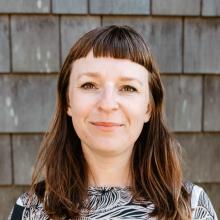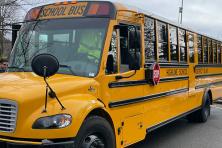Tuesday was not a happy day for the climate, transportation, and equity in Washington State. However, we know that this work is not always easy, and we’re determined to keep progressing. While the results of the election so far are not positive, we’re working on next steps for funding a clean transportation system that is accessible to all. Here’s what’s happening.
Referendum 88
An approval of Referendum 88 would promote fair and equitable opportunities for everyone, leveling the playing field for women, veterans, people of color, seniors, and individuals with disabilities. It sadly appears that Referendum 88 is being rejected, though the vote is close and the tally is not yet final. Whatever the outcome, Climate Solutions will continue embracing one of our guiding values of justice: “To achieve climate stability and resilience, we must address injustice and inequity in our own communities and beyond.”
Initiative 976
Unfortunately, Tim Eyman’s Initiative 976, which will cut more than $4 billion from public transportation, road, and rail projects over the next six years, has passed. The impacts will be felt all over Washington State as nearly $350 million in voter-approved local transportation project funding through Transportation Benefit Districts will be eliminated.
King County is facing the loss of 300,000 hours of bus service, 14,000 bus passes for low-income families, and billions in state funding that would go to road safety and ferry improvements. King County Executive Dow Constantine and Seattle Mayor Jenny Durkan are seeking an injunction on the initiative and are planning lawsuits.
Everyone deserves to be able to safely and affordably access where they work, do errands, and interact with their community. We also need a stable climate. Though Initiative 976 threatens this by jeopardizing our transit systems and road safety, we will be fighting back with creative policy that will benefit communities and the climate. So, Climate Solutions is working hard with its partners on progressive, carbon-forward revenue options that will be invested in a clean and just transportation system.
We’re not waiting for the upcoming legislative session to advocate for a clean transportation system. Don’t forget that the Puget Sound Clean Air Agency is considering the strongest clean fuel standard in the nation, one that an agency analysis says will even prevent premature deaths and reduce carbon in our transportation sector by 25% by 2030. In addition to protecting our health and our climate, this standard will provide revenue for utilities to reinvest in transportation electrification, and for transit agencies to improve their fleets and their service. In California, transit agencies receive $10,000 annually in credit revenue for each electric bus they operate—money which can then be used to further improve transit, creating a positive cycle. A statewide clean fuel standard would provide these same benefits, which will be especially impactful in the wake of Initiative 976.
Tuesday’s results were disappointing, but we’re determined to continue fighting for our climate, our health, and our communities. Join us in supporting a strong clean fuel standard today, and stay tuned for more advocacy to come.





